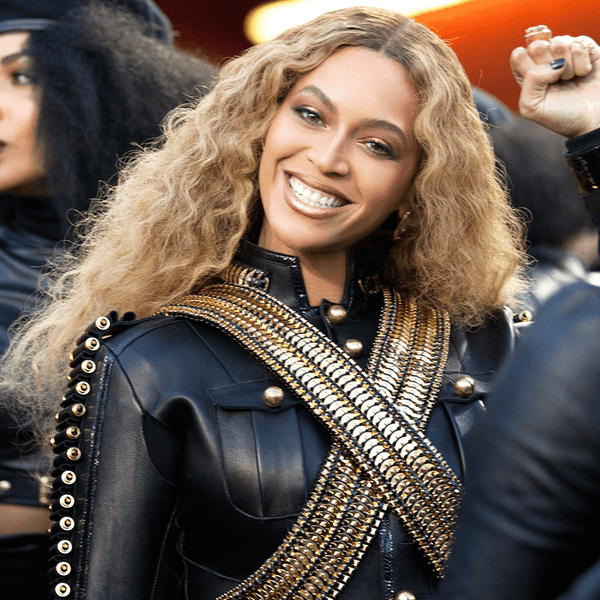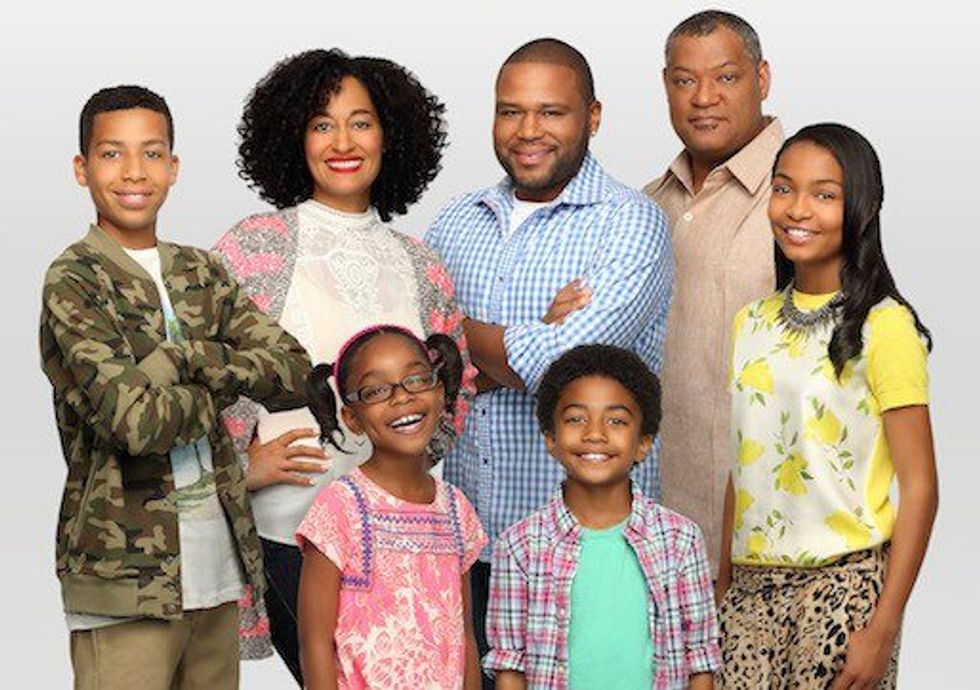"Black-ish" is a hilarious show about the modern day black family. It comically portrays the trials and triumphs that the black community faces both in and out of the home.
This episode of "Black-ish" opens with the family gathered around a TV, awaiting the indictment decision. The terrible thing is that they have to distinguish amongst each other to explain to Zoey, the eldest daughter of the family, which incident they are actually watching. This represents that these incidents of police brutality occur so frequently, that they often blur together as one never-ending recurrent trauma. This is further evidenced by Andre insisting that these incidents aren’t new but the cameras are. As a person with a background focused in forensic psychology, I just cannot help but wonder what kind of on-going trauma we experience as Americans who are constantly bombarded with images of people of color being threatened, assaulted, and even killed at the hands of systematic racism within our criminal justice system. This episode of "Black-ish" allows viewers to see the multiple perspectives people hold towards these cases through each of the family characters.
The youngest children, the six-year-old twins, Jack and Diane, represent innocence. They are unaware of what is occurring, yet they are not completely ignorant. They feel the pain of the loved ones despite not fully understanding. They are curious to find out what is going on.
Zoey represents those who watch these horrific acts in silence and adopt and attitude of willful ignorance because it is too upsetting to deal with. Zoey too, is well aware of what’s going on. This trendy teen is too involved in a host of social media sites to not know. However, she feels her grief silently, mixed with emotions of being lost and confused. She represents many people who simply do not know what to do about these occurrences. So she figures, if we stop talking about them, then they will somehow disappear, or perhaps won’t be as bothersome. Her thinking represents a false desensitization and attitude of ambivalence.
Junior, the eldest son, represents many of youth of today. They have “read one book and become experts on all things black,” as his father, Andre, said to him. Junior represents the revolutionary spirit within the youth. He is ready to fight the power because he’s fed up. However, as Andre points out to Junior “just having a little bit of knowledge is dangerous.” Junior needs guidance, which is evident by his agreement with his sister Zoey, that he too is lost and confused. This is why it is good that he’s able to learn more about this plight of injustice from his family members.
The grandparents both represent the elders who lived to witness these tragedies for generations. They both have attitudes of extreme distrust, suspicion, and fear of the police and legal establishment. Who can blame them for they feelings though, because they are not unwarranted due to witnessing story after story for decades. They serve as vital resources of information and guidance for dealing with cops, as witnessed when grandmother Ruby teaches the twins the “yes sir, no sir” respectability politics of her generation that have passed down as a method of survival in many black families.
Rainbow, the biracial mother, represents naiveté. She’s the faithful believer that “it’s not all bad,” and “the justice system will work it out.” She doesn’t believe in rocking the boat. Furthermore, Rainbow doesn’t want to expose her innocent children to the horrors of the system, unbeknownst to her that her children are already internalizing the positive and negative messages from the world around them. Rainbow is naïve to think that by sheltering her children she is doing them any favors.
This particular point is best made by Andre, who is the realist in the family. He wants to equip his children with the proper knowledge so that they can effectively navigate the world they live in, including by teaching them understanding these traumatic situations of injustice.
A brilliant dialogue point occurs when Rainbow stresses the point that “not all cops are bad,” and “police lives are on the line.” To which Junior replies to his M.D. mother that “that’s a part of their job.” “One in four deaths makes a bad doctor, so does it make a bad cop?” This little exchange represents those who don’t want the police to be heavily criticized and scrutinized, but based on the numbers, there is great necessity and urgency for improvement.
Finally, I enjoyed how this episode discussed hope and how vital it is to have in seemingly hopeless situations. Andre discusses the election of President Obama and the optimistic attitudes many people adopted about America’s future towards misguided color-blindness. However, this optimism and the audacity of hope seems to dissipate little by little as each of these cases continues to present themselves.
So if you haven’t already, please do yourself a favor and watch this episode of Black-ish, available on Hulu. These are type of conversations my parents have had to have with my brother and I for years, except there's no naïve Rainbow at our house. As a parent it is your responsibility to prepare your children for life, and as terrible as it is, these incidents of police misconduct are an aspect of the traumatic reality we all live in. You do your black, white, Latino, Asian, native, other, etc. children no justice if they have to find out about these things on their own, it could literally cost them their lives. Additionally, talking about these issues fosters a necessary conscious awareness that is needed to rid America of police brutality and mass incarceration. So do not teach your children to be blind or color blind to these issues. Give them clarity, awareness, and hopeful vision to make this country a better place for people of all races.





















